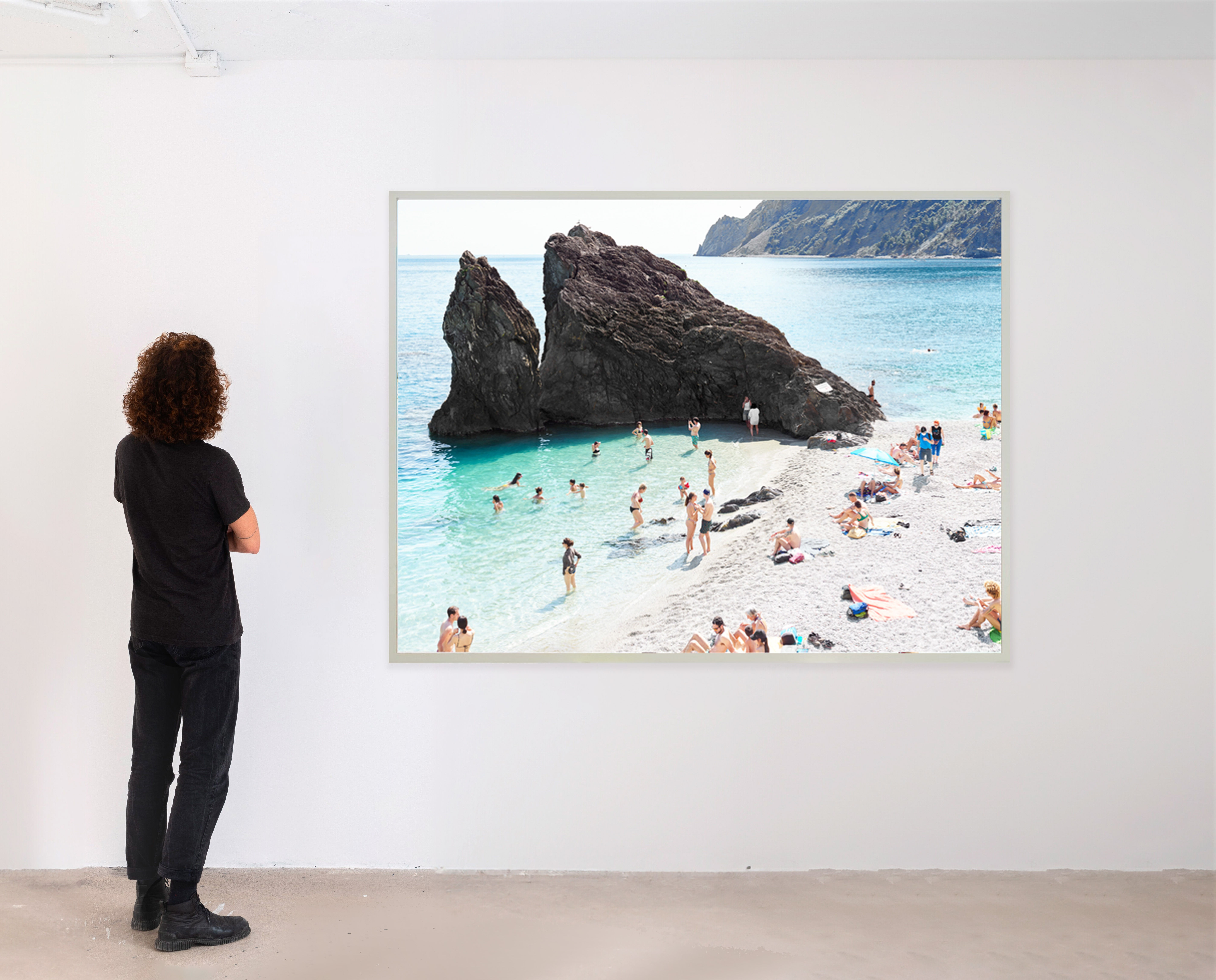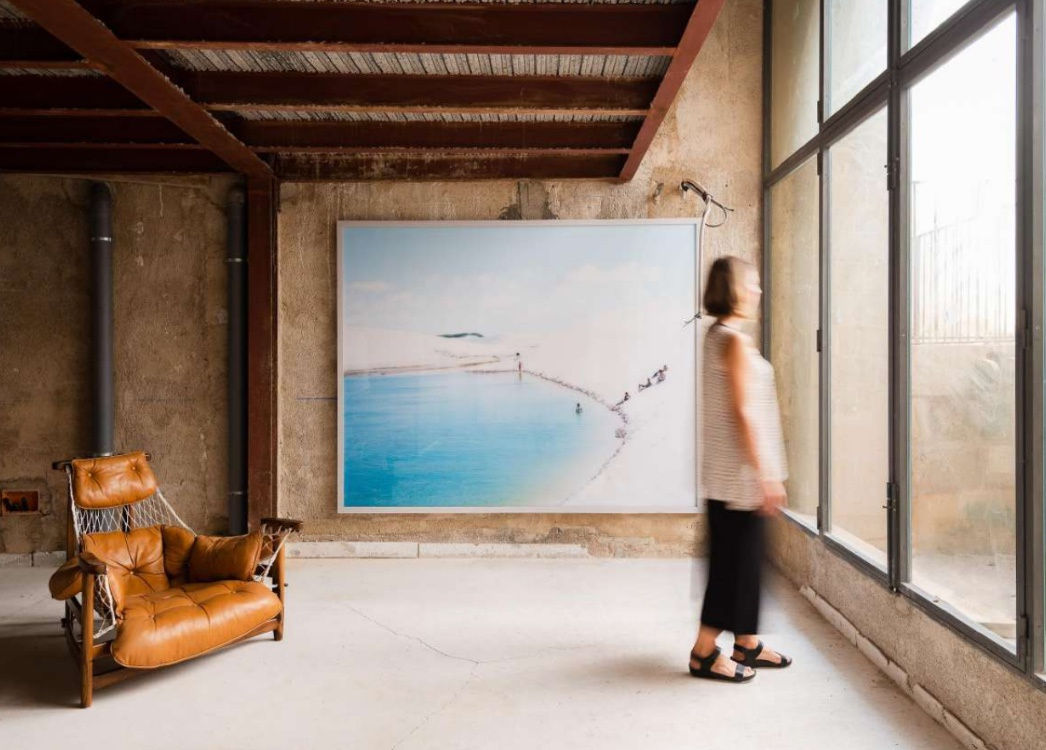Massimo Vitali: A Lens on Society
-
“Because my pictures are not about spying or about finding out strange things about people. It’s about explaining our daily life. Who wouldn’t want to be in one of my pictures?”
The Italian photographer Massimo Vitali has spent the last 25 years taking pictures of people congregating on beaches, but he does not like to be called a “beach photographer.” Vitali’s early photographs of heavily populated beaches are more than lively snapshots of sunseekers in picturesque locations. The composition of his photographs recalls Venetian landscape paintings, the cinema of Italy’s New Wave and the atmospheric perspective of Renaissance masterpieces.

With his tripod and a computer set up to his left, Vitali overlooks his scene and waits until the moment is right to shoot. He does not shoot looking through the camera, preferring to keep his eyes on the crowd. While he says he is not looking for any one particular interaction or moment, he knows when the moment is right – he has been known to stay up there for 20 hours at a stretch.“On beaches, people don’t move so much,” he says. “I need time to think, and they need time to express themselves.” […] He prefers to shoot in the middle of the day, when the sun is directly overhead, to avoid any shadowing at all. “Have you ever seen shadows in Renaissance paintings?” he asks me. “I don’t like shadows. You don’t see dark blue shadows when you go to the beach, but they do come out in the photographs.”

 Since last summer, Vitali and his team have been working to upload his entire archive – every photograph he has taken in the past 28 years – onto his website. Viewed as a whole, it’s possible to view his oeuvre as a chronicle of how society has evolved since the end of the last century. Part anthropologist, part voyeur, he has captured the many ways in which people have changed – from the rise of the cult of the body, to the boom of the digital age.
Since last summer, Vitali and his team have been working to upload his entire archive – every photograph he has taken in the past 28 years – onto his website. Viewed as a whole, it’s possible to view his oeuvre as a chronicle of how society has evolved since the end of the last century. Part anthropologist, part voyeur, he has captured the many ways in which people have changed – from the rise of the cult of the body, to the boom of the digital age.
“Sometimes I look at the early pictures and I can’t believe it’s us,” he says. “It’s another tribe. You see how the world has changed – everything from the shape of the body, the way people wear their hair, even the colours of the towels and bathing suits. There were no tattoos, no one was on a phone. Everything is so completely different. That is what I am interested in seeing and discovering.” He says that in all his time taking photographs, he has never had a confrontation or a problem with anyone on the beach.
-
-
-

-
Contact Form
Send me more information on Massimo Vitali







